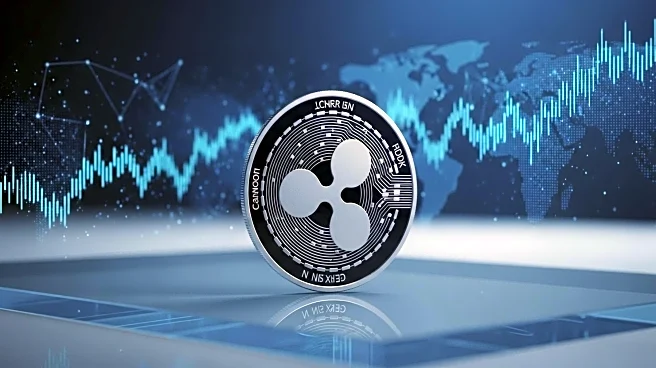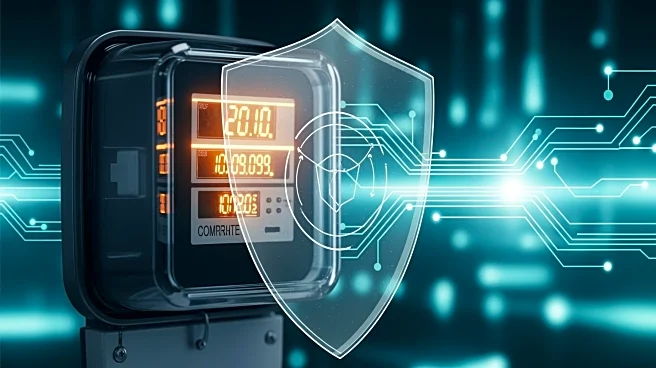What's Happening?
XRP, Ripple's native token, is gaining traction in cross-border financial transactions following a key partnership with Linklogis, a Chinese supply chain finance provider. The collaboration aims to deploy Ripple's applications on the XRPL mainnet, enhancing XRP's commercial use. The recent resolution of the SEC lawsuit against Ripple has provided legal clarity, affirming that XRP programmatic sales are not securities, thus reducing regulatory uncertainty and boosting institutional adoption potential.
Why It's Important?
The legal clarity surrounding XRP's status as a non-security is a significant milestone for its integration into global financial systems. This resolution removes barriers to institutional adoption, potentially accelerating XRP's utility in real-world applications. Ripple's stablecoin, RLUSD, backed by reserves custodied with BNY Mellon, further highlights the growing interest in XRP-based stablecoins as tools for financial innovation. The partnership with Linklogis marks a step toward integrating XRP into decentralized finance ecosystems.
What's Next?
The post-litigation landscape for XRP creates a favorable environment for its integration into real-world financial use cases. Ripple's stablecoin RLUSD continues to gain traction, facilitating instant settlement in cross-border payments. The coming months will determine whether XRP can sustain its momentum and establish itself as a viable long-term investment in the crypto space.
Beyond the Headlines
The broader crypto market sees growing interest in early-stage tokens, with projects like MAGACOIN FINANCE capturing investor attention. The presale's rapid sellouts indicate strong investor appetite, particularly in a market environment where capital tends to flow toward smaller, high-upside projects during periods of volatility in larger assets.








